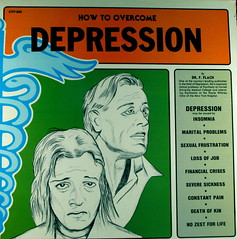-
![[I am not amused] Inflatable Unicorn Horn for
Cats](/ps/images/unicorn_cat_horn.jpg) It's that time of year for Dave Barry's Gift
Guide. Someone you know, I'm sure, will want a Trailer-hitch-mounted
Stripper Pole. And what cat owner will not be overjoyed by
receiving one or more Inflatable Unicorn Horns
for their cat? (The cat, probably not so much.)
It's that time of year for Dave Barry's Gift
Guide. Someone you know, I'm sure, will want a Trailer-hitch-mounted
Stripper Pole. And what cat owner will not be overjoyed by
receiving one or more Inflatable Unicorn Horns
for their cat? (The cat, probably not so much.)
-
Is there anyone out there
who has the slightest doubt that the New York Times
editorialists are partisan hacks? Or (on the other hand)
is there anyone who needs more evidence of that?
Compare this November 2004 editorial, written when Republicans had a majority in the US Senate, and were looking at changing filibuster rules, then known as the—oooh, scary—"nuclear option".
The Republicans see the filibuster as an annoying obstacle. But it is actually one of the checks and balances that the founders, who worried greatly about concentration of power, built into our system of government. It is also, right now, the main means by which the 48 percent of Americans who voted for John Kerry can influence federal policy. People who call themselves conservatives should find a way of achieving their goals without declaring war on one of the oldest traditions in American democracy.… but it's eight years later, roles are reversed, and the Times editorial writers have lost their respect for "one of the oldest traditions in American democracy."
Every new crop of senators brings the potential for moving away from hoary rules and traditions that have virtually crippled American lawmaking. Next year, 12 new senators will join the chamber, only three of whom are Republicans. Many of the others are younger, more liberal and more feisty than the ones they replaced, and several have already expressed support for ending legislative abuse.The 2004 "nuclear option" has now become a mild move to "change the rules". Nary a word of concern for the (as I type) main means by which the 47.43% of Americans who voted for Mitt Romney can influence federal policy.
-
Last
week, I poked some fun at an unusually silly and pompous NYT
op-ed
from a guy named Evgeny Morozov, which advocated… something about
getting content-providing corporations to give up on their "deeply
conservative, outdated norms" via "auditing" their "algorithms".
Adam Thierer at the Tech Liberation Front analyzed Evgeny's op-ed slightly more seriously. He tried engaging Evgeny via Twitter, but was treated to "nasty, sarcastic, dismissive responses that call into question the intellectual credentials of anyone who even dares to ask him a question about his proposals."
It's fun reading, if only to dispel any illusions you might have about the maturity of NYT op-edders.
![[3.0 stars]](/ps/images/30stars.gif)
![[IMDb Link]](https://ia.media-imdb.com/images/G/01/imdb/plugins/rating/images/imdb_46x22.png)
![[Amazon Link]](/ps/asin_imgs/B001LM64S8.jpg)
![[4.0 stars]](/ps/images/40stars.gif)
![[Amazon Link]](/ps/asin_imgs/B004EPZ0BG.jpg)
![[Amazon Link]](/ps/asin_imgs/B0089MUDM6.jpg)
![[Amazon Link]](/ps/asin_imgs/1555914241.jpg)
![[Amazon Link]](/ps/asin_imgs/0399575200.jpg)
![[Amazon Link]](/ps/asin_imgs/B009RI4FRU.jpg)





![[Amazon Link]](/ps/asin_imgs/1594035849.jpg)
![[3.5 stars]](/ps/images/35stars.gif)
![[Amazon Link]](/ps/asin_imgs/B008OHV49W.jpg)
![[Amazon Link]](/ps/asin_imgs/0679727299.jpg)
![[Amazon Link]](/ps/asin_imgs/B007REV4T8.jpg)
![[Amazon Link]](/ps/asin_imgs/B002UJIY7A.jpg)



![[Math]](http://imgs.xkcd.com/comics/math.png)
![[phony baloney]](/ps/images/phony-baloney.jpg)
![[4.5 stars]](/ps/images/45stars.gif)
![[Amazon Link]](/ps/asin_imgs/B0081FSMII.jpg)
![[Amazon Link]](/ps/asin_imgs/B000FCK5PI.jpg)

![[Amazon Link]](/ps/asin_imgs/B004SIP7K8.jpg)
![[The Blogger and His Dog]](/ps/images/me_with_barney.jpg)



